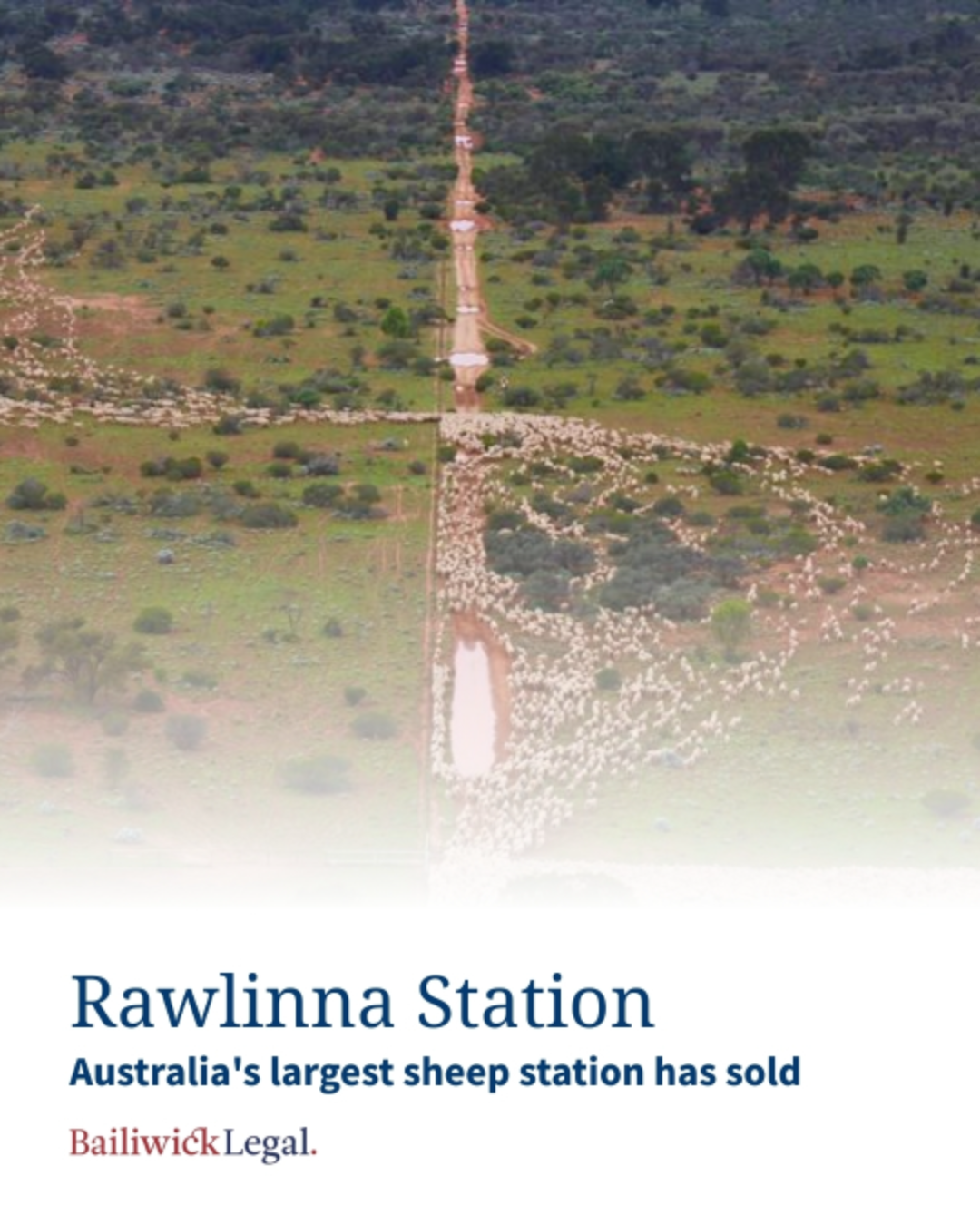Would I need to pay Workers Compensation if my Employee Contracts COVID-19? A case summary of Sara v G&S Sara Pty ltd’
February 19, 2026
Author name
COVID-19 has drastically impacted on employers management practices in relation to their employees. The Western Australian Government recently mandated vaccinations for particular industries, creating uncertainties for employers in those industries as well as in areas where the COVID-19 vaccination is not yet mandated as compulsory. Whilst the WA Government is largely deferring the mandatory vaccination requirement to the employer – a recent case in NSW may provide an insight for employers when considering their options.
In the recent case of Sara v G & S Sara Pty Ltd
[2021] NSWPIC 286 (‘the Sara Case’), the Court determined that an employee who contracted the COVID-19 virus during the course of the employment was entitled to workers compensation payments
The Sara Case
In the Sara Case, Mr Sara, a director of G & S Sara Pty Ltd (‘the employer’), passed away after contracting the COVID-19 virus whilst travelling on a trip to New York from Sydney to sell and promote the employer’s products. While in the United States, Mr Sara tested positive to COVID-19 and was admitted to a New York Hospital, where he suffered heart attacks and strokes, before dying from COVID-19 complications. Mr Sara’s wife applied for compensation for her husband’s hospitalisation, medical and funeral expenses in addition to a lump sum death benefit pursuant to the NSW Workers Compensation Act 1987
(‘the Act’).
In the application made under the Act, the NSW Personal Injury Commission (‘the Commission’) was required to determine two contentious issues.
- Whether Mr Sara was considered to be an employee of the employer whilst on travel; and
- Whether Mr Sara contracted the COVID-19 virus during the course of his employment.
Interestingly, the question of whether COVID-19 fell within the definition of ‘injury’ under the Act, was not put in issue.
The Commission’s Findings
Although the employer argued that Mr Sara contracted the COVID-19 virus during social functions outside the course of his employment in New York, the Commission held that Mr Sara was very likely to have contracted COVID-19 during his travel to New York from Sydney, which included his transit from San Francisco to New York. The Commission made this determination by analysing the following factors:
- Mr Sara’s length of travel from Sydney to New York, which exposed Mr Sara to many environments and potential close contacts, making Mr Sara likely to contract COVID-19;
- Mr Sara’s unwillingness to wear a mask during his travel from Sydney; and
- The medical evidence provided to the Commission as to the likely incubation period of the virus.
Secondly, the Commission found that Mr Sara’s contraction of the COVID-19 virus was within the course of Mr Sara’s employment with the employer, citing the following reasons:
- Mr Sara was a paid employee with the employer under a contract of service;
- the employer paid workers compensation insurance including for Mr Sara;
- the work trip was induced and encouraged by the employer, to produce outcomes for the benefit of the employer; and
- Mr Sara was continually receiving his ordinary wage from the employer while he was in the United States (and was not on annual leave during his travel to the United States).
As a result, the employer was ordered to pay Mr Sara’s wife a lump sum death benefit and weekly compensation of $834,000 to compensate for the period of Mr Sara’s hospitalisation and resulting death due to COVID-19.
Relevance to Western Australian Employers
Section 4 of the Western Australian Workers Compensation and Injury Management Act 1981 (‘the WA Act’) defines ‘injury’ to mean the following:
(a) a personal injury by accident arising out of or in the course of the employment, or whilst the worker is acting under the employer’s instructions; or
(b) a disease because of which an injury occurs under section 32 or 33; or
(c) a disease contracted by a worker in the course of his employment at or away from his place of employment and to which the employment was a contributing factor and contributed to a significant degree; or
(d) the recurrence, aggravation, or acceleration of any pre-existing disease where the employment was a contributing factor to that recurrence, aggravation, or acceleration and contributed to a significant degree; or
(e) a loss of function that occurs in the circumstances mentioned in section 49,
but does not include a disease caused by stress if the stress wholly or predominantly arises from a matter mentioned in subsection (4) unless the matter is mentioned in paragraph (a) or (b) of that subsection and is unreasonable and harsh on the part of the employer
In light of the Sara Case, and given that the dominant literature provides that COVID-19 is a disease, employers in WA may find themselves liable under Section 4(c) of the WA Act in the event that an employee contracts COVID-19 during the course of the employment of the employee, or at a location whereby the employment was a contributing factor to contracting COVID-19.
Conclusion
Overall, the Sara Case underscores the importance for employers to be mindful of the propensity for employees to contract diseases, such as COVID-19 during the course of the employment of an employee, or at a location whereby the employment was a contributing factor to contracting the disease, and to implement measures to minimise that risk. A minimisation measure may be to introduce a mandatory vaccination policy.
If you would like further information in relation to how the above matters may affect your business or assistance in drafting a mandatory vaccination/proof of vaccination policy, please contact us on (08) 9321 5451 or by email at office@bailiwicklegal.com.au.
By Mikhail Safarudin (Law Graduate)
For further information about our legal services, please visit our website: https://www.bailiwicklegal.com.au/
The above information is a summary and overview of the matters discussed. This publication does not constitute legal advice and you should seek legal or other professional advice before acting or relying on this information.

Bailiwick Legal has been honoured to support Forever Wild over the past few years as they delivered one of the most significant conservation land acquisition programs undertaken in Western Australia. Our team assisted Forever Wild with the strategic purchase of four pastoral stations, Narndee , Boodanoo , Meeline and Challa , transactions that now connect three State Reserves and protect more than 12,000 square kilometres of land. To put that scale into perspective, the combined area is approximately five times the size of the ACT and nearly one-fifth the size of Tasmania . Navigating complexity at scale These were not straightforward property transactions. Each acquisition involved: Multiple pastoral leases Layered regulatory and approval pathways Significant operational and on-ground assets Numerous stakeholders across government, industry and land management Our role was to guide Forever Wild through this complexity with clarity, precision and confidence, ensuring each transaction progressed efficiently while managing risk and safeguarding long-term objectives. “ Forever Wild is creating a world-leading model for nature funding that demonstrates we can manage viable, working pastoral stations whilst also restoring and protecting local ecological flora and fauna, and engaging and supporting Indigenous people and local communities. Complex & challenging, but this initiative could literally change the world .” Jessica Brunner - Director, Bailiwick Legal A growing and evolving legal landscape Large-scale conservation acquisitions sit within an emerging and increasingly complex legal field , intersecting land tenure, pastoral regulation, environmental frameworks and commercial considerations. These matters demand a deep understanding of both the legal mechanics and the practical realities of operating in regional and remote Australia. Our team’s experience in agribusiness, pastoral land transactions and regulatory approvals allowed us to support Forever Wild at every stage, from strategic structuring through to completion. Proud to support leadership in nature finance Forever Wild is widely recognised as an industry leader and a steadfast advocate for nature finance initiatives , helping pave the way for greater accessibility and innovation in conservation funding and land stewardship. We are proud to have contributed our relationships, expertise and practical legal insight to help Forever Wild achieve its vision, and to have played a role, however small, in shaping a groundbreaking future for conservation in Australia. At Bailiwick Legal, we value the opportunity to work alongside organisations that are thinking long-term, acting boldly, and creating outcomes that extend well beyond the transaction itself. For assistance with all of your agribusiness needs, contact Bailiwick Legal on 08 9321 5451 or email office@bailiwicklegal.com.au For further information about our legal services, please visit our website: https://www.bailiwicklegal.com.au The above information is a summary and overview of the matters discussed. This publication does not constitute legal advice and you should seek legal or other professional advice before acting or relying on any of the content.

Bailiwick Legal Advises on Landmark Acquisition of Rawlinna Station by Consolidated Pastoral Company
Bailiwick Legal is proud to have acted for Consolidated Pastoral Company (CPC) in its successful acquisition of Rawlinna Station , Australia’s largest sheep station, located on the remote Nullarbor Plain in Western Australia. Spanning over 1 million hectares and running approximately 30,000 sheep , Rawlinna is an iconic pastoral asset with a rich legacy, having been held by the MacLachlan family’s Jumbuck Pastoral Company since its establishment in 1962. The sale marks the first change of ownership in over six decades and was finalised following formal approval from the Western Australian Government for the transfer of the pastoral leases. This transaction involved navigating: The transfer of three separate pastoral leases Coordination across multiple vendor entities Consideration of livestock and operating assets Fulfilment of regulatory and compliance requirements, including WA lease approval processes Bailiwick Legal is a boutique agricultural and regional law firm , proudly based in Perth and Bridgetown, Western Australia. Our role in this acquisition demonstrates that deep sector knowledge, local insight, and personalised legal support are crucial for agribusiness clients managing complex, high-value transactions. Our team, led by our regionally-based solicitor, Matilda Lloyd, provided end-to-end legal and strategic support, including: Due diligence on land tenure and operating assets Contract negotiation and preparation Advice on regulatory approvals and compliance Strategic coordination with CPC’s internal and external stakeholders to ensure a smooth and timely settlement We are honoured to have supported CPC in this milestone acquisition and look forward to watching Rawlinna’s next chapter unfolds. At Bailiwick Legal, we believe that regional expertise, deep industry knowledge, and relationship-based service remain essential to agribusiness success, no matter the scale. Congratulations to all parties involved, including the MacLachlan family, whose stewardship of Rawlinna leaves a lasting legacy in Australian agriculture. – The Bailiwick Legal Team Working alongside agribusinesses to grow, transition, and thrive . For assistance with all of your agribusiness needs, contact Bailiwick Legal on 08 9321 5451 or email office@bailiwicklegal.com.au By Matilda Lloyd (Associate) For further information about our legal services, please visit our website: https://www.bailiwicklegal.com.au The above information is a summary and overview of the matters discussed. This publication does not constitute legal advice and you should seek legal or other professional advice before acting or relying on any of the content.











